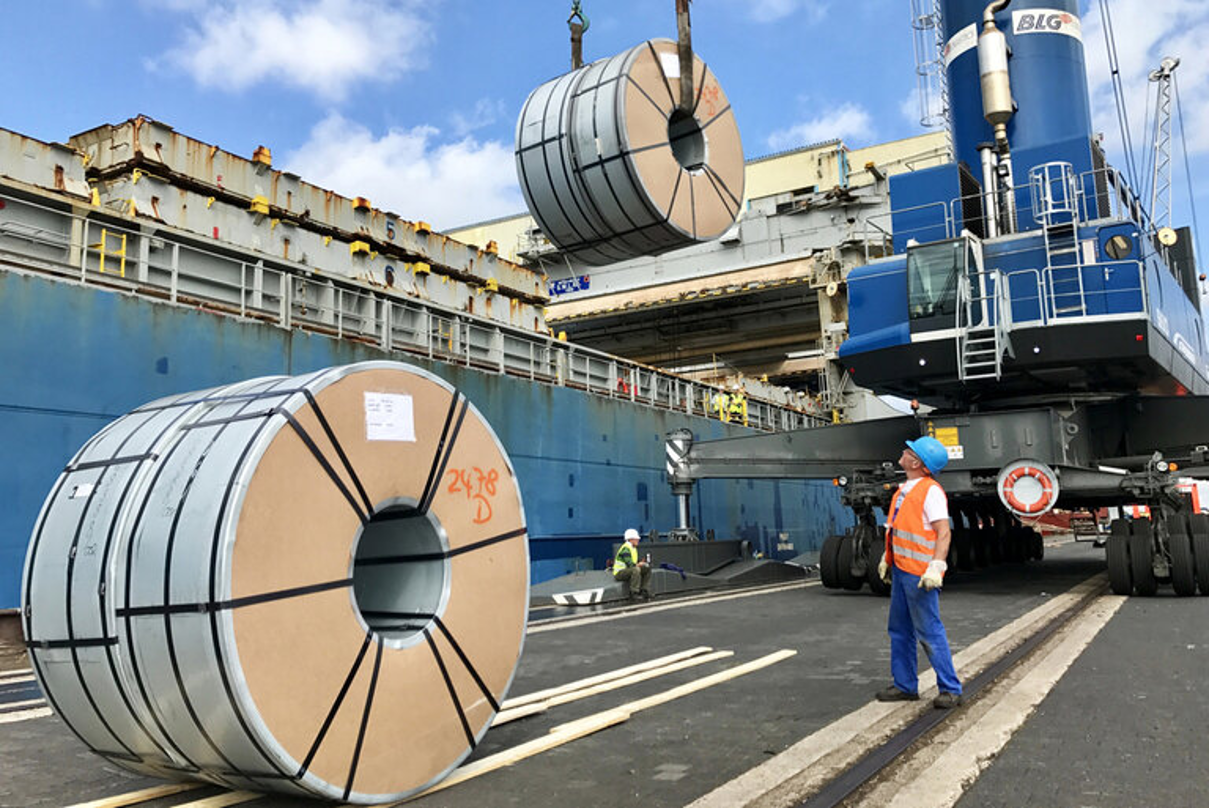Canada

May 18, 2019
U.S. Lifts Section 232 Tariffs on Canada and Mexico
Written by Sandy Williams
The U.S. has agreed to lift steel and aluminum tariffs on Mexico and Canada, removing a major roadblock to the ratification of the new North American trade agreement. The Section 232 tariffs, imposing a 25 percent tax on steel imports and 10 percent on aluminum, have been in place just over one year.
The tariffs will be lifted on Monday. In return, Canada and Mexico will end all retaliatory measures and work together with the U.S. to prevent the import of aluminum or steel products that are unfairly subsidized or sold at dumped prices, as well as preventing the transshipment of steel and aluminum between the three countries. All WTO litigation between the U.S., Canada and Mexico regarding Section 232 will be dropped.
The three countries agree to monitor the North American steel trade. If aluminum or steel products surge meaningfully over historical volume, the importing country may, after consultation with the exporting country, impose duties of 25 percent for steel and 10 percent for aluminum on the specific products in question. Retaliation may only be taken by the exporting country in the affected metals sector. Products made from steel or aluminum melted and poured in North America may be treated separately from those products that are not.
Prime Minister Justin Trudeau announced the agreement between Canada and the U.S. at the Stelco steelworks in Hamilton, Ontario.
When asked what Canada gave up to get the tariffs lifted, Trudeau said, “This is pure good news. People asked whether we would accept quotas or restrictions, but we stayed strong.”
“We did make the commitment to work with the United States on watching how the industry is evolving and making sure that we’re not becoming victims of global pressures on our steel industry,” said Trudeau, adding that it was something the Canadian industry wanted anyway.
Trudeau said that tariffs did not make sense between the countries; they were hurting both Canadian and American consumers and workers. “When the U.S. imposed tariffs, we stood up for Canada’s economy and our steel and aluminum workers and their families. We immediately retaliated dollar-for-dollar – the strongest retaliation in the world. We stood firm and would not back down until we achieved today’s outcome.”
To Canadian workers, Trudeau said, “We’ll always have your back so you can keep our economy strong and growing across the country.”
Jesús Seade, Mexico’s foreign affairs undersecretary for North America, said the agreement was received with “great enthusiasm” in Mexico. He added, “This action opens the path to advance toward the ratification” of the new North American trade deal.
President Trump referenced the agreement at the beginning of his remarks Friday to the National Association of Realtors, saying, “I’m pleased to announce we’ve just reached an agreement with Canada and Mexico to sell product without the imposition of major tariff.”
Following Trudeau’s announcement at the Hamilton steelworks, Stelco CEO Alan Kestenbaum said, “Now that we have that cleared out of the way — and we have become leaner, smarter and better — we are going to be able to really excel.”







